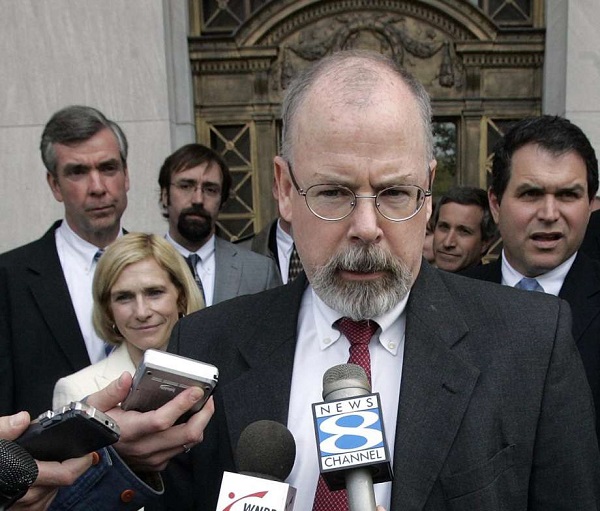Special prosecutor John Durham subpoenaed liberal think tank, the Brookings Institute over a former employee, Igor Danchenko and his connections to the bogus Steele Dossier paid for by the Hillary campaign and the DNC.
Danchenko was the alleged primary source for the Steele dossier, but he has disputed much of what went into the dossier and attributable to him. Some he said was embellished and some he said he knew nothing about.
It is said that the Brookings Institute cooperated fully in the Durham investigation. The institute was and is not the target in the investigation.
Danchenko had worked there as an analyst before moving on and he even landed a job at Steele-owned Orbis Business Intelligence.
He testified that he passed rumors on to Steele, who then represented the rumors as truth. Danchenko says that other parts of the dossier listing him as the source did not come from him.
The inspector general report found 17 inaccuracies in the FBI’s applications for FISA warrants against Carter Page, including a forged email from the CIA for which Kevin Clinesmith pleaded guilty to without so much as a slap on the wrist. I still don’t expect results from the Durham investigation.
The investigation has drug on forever and many key witnesses have never been called to the best of my knowledge.
Investigations led by Special Counsel Robert Mueller, the Justice Department inspector general and several congressional committees all undermined the dossier’s central thesis of a “well-developed conspiracy of cooperation” between the Trump campaign and Russian government.
The IG report also debunked several specific claims of collusion that are found in the Steele dossier. One of those is Steele’s claim that Trump lawyer Michael Cohen visited Prague in August 2016 to meet with Kremlin insiders regarding hackers.
The general counsel for Brookings told The Times that Durham’s office issued its subpoena on Dec. 31, and that the think tank had turned over documents in February.
“Consistent with its practices in such matters, Brookings provided the responsive documents, none of which contained information associated with the reports known as the Steele dossier,” Michael Cavadel told The Times.
EDITOR’S NOTE: The reports also show that CHINA FUNDED THE COUP … that story HERE











